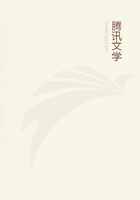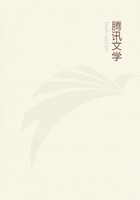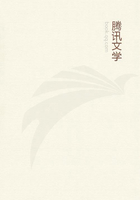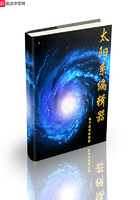only by comparison with the cost of the assets which it covers, not in relation to its earning-capacity. The latter point is taken care of by the stock quotations of the market. On the other hand, intangible assets neither have now nor ever have had any other basis than capitalisation of earning capacity, and any question of "water" in their case is consequently quite idle.
Intangible assets will not hold water.
Corporation finance is one of the outgrowths of the New Order. And one of the effects wrought by corporation finance is a blurring of the distinction between tangible assets and intangible; inasmuch as both are now habitually determined by a capitalisation of earning-capacity, rather than by their ascertained cost, and it is difficult, if not impossible, to draw a hard and fast line between that part of a concern's earning-capacity which is properly to be assigned to its plant and that which is due to its control of the market. Still, an intelligible distinction is maintained in common usage, between tangible assets and intangible, even if the distinction is somewhat uncertain in detail; and such a distinction is convenient, so long as too sharp a contrast between the two is not insisted on.
The earning-capacity of the tangible assets is presumed to represent the productive capacity of the plant, considered as a mechanical apparatus engaged in an industrial process for the production of goods or services; it is presumed to rest on the market value of the mechanical output of the plant. The plant is a productive factor because and in so far as it turns to practical account the state of the industrial arts now in use, --
the community's joint stock of technological knowledge. So soon, or so far, as the plant and its management falls short of meeting the ordinary requirements of this current state of the industrial arts, and fails to make use of such technological knowledge as is commonly employed, the whole works ceases by that much to be a productive factor. The productive efficiency, and the productive value, of any given item of industrial equipment is measured by its effective use of the technological knowledge current in the community for the time being. So also, the productive value of any given body of natural resources land, raw materials, motive power -- is strictly dependent on the degree in which it fits into the industrial system as it runs.
This dependence of productive value on conformity to and use of the state of the industrial arts is constantly shown in the case of land and similar natural resources, by the fluctuation of rental values. Land and other resources will be more valuable the more suitable they are for present and prospective use. The like is true for the mechanical equipment, perhaps in a more pronounced degree. Industrial plant, e.g., is always liable to depreciation by obsolescence in case the state of the industrial arts changes in such a way that the method of work embodied in the particular article of equipment is displaced by new and more suitable methods, more suitable under the altered circumstances.
In such a case, which is of very frequent occurrence under the new order of industry, any given plant, machine, or similar contrivance may lose all its value as a means of production. And so also, on the other hand, a given plant, as, for instance, a given railway system or dock, may acquire additional productive value through changes in the industrial system which make it more suitable for present use.
Evidently the chief, or at least the indispensable, element of productive efficiency in any item of industrial equipment or resources is the use which it makes of the available technological knowledge; and evidently, too, its earning-capacity as a productive factor depends strictly on the same fact, -- the usufruct of the state of the industrial arts. And all the while the state of the industrial arts, which the industrial equipment so turns to account for the benefit of its owner, continues to be a joint stock of industrial knowledge and proficiency accumulated, held, exercised, increased and transmitted by the community at large; and all the while the owner of the equipment is some person who has contributed no more than his per-capita quota to this state of the industrial arts out of which his earnings arise. Indeed the chances are that the owner has contributed less than his per-capita quota, if anything, to that common fund of knowledge on the product of which he draws by virtue of his ownership, because he is likely to be fully occupied with other things, -- such things as lucrative business transactions, e.g., or the decent consumption of superfluities.
And at this point the difference between tangible assets and intangible comes in sight, or at least the ground of the habitual distinction between the two. Tangible assets, it appears, are such assets as represent the earning-capacity of any mechanically productive property; whereas intangible assets represent assured income which can not be assigned to any specific material factor as its productive source. Intangible assets are the capitalised value of income not otherwise accounted for. Such income arises out of business relations rather than out of industry; it is derived from advantages of salesmanship, rather than from productive work; it represents no contribution to the output of goods and services, but only an effectual claim to a share in the "annual dividend," -- on grounds which appear to be legally honest, but which can not be stated in terms of mechanical cause and effect, or of productive efficiency, or indeed in any terms that involve notions of physical dimensions or of mechanical action.
When the theoreticians explain and justify these returns that go to adroit salesmanship, or "managerial ability," as it is also called, it invariably turns but that the grounds assigned for it are of the nature of figures of speech -- metaphor or analogy.

